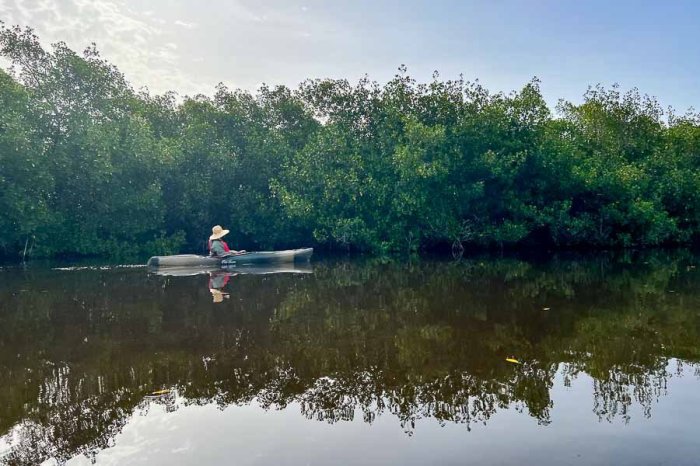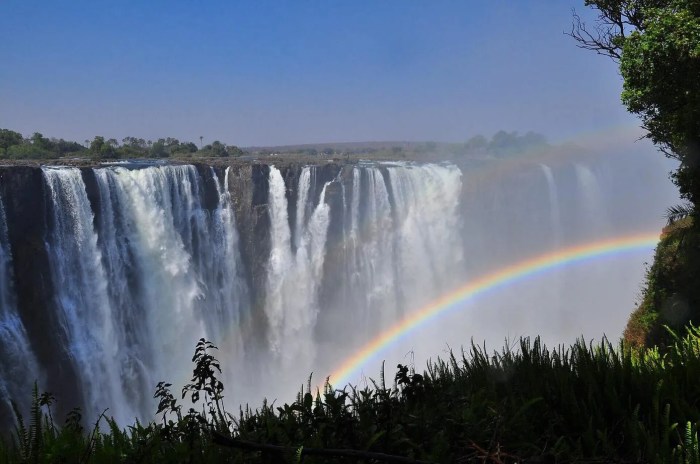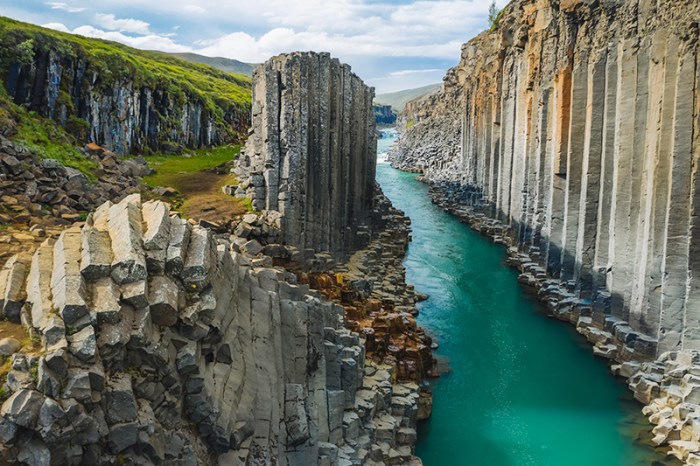Eco Tours A Sustainable Journey
Eco tours offer a unique and rewarding way to experience the world, blending exploration with environmental responsibility. These tours go beyond the typical tourist experience, focusing on minimizing their impact on the planet and supporting local communities. From wildlife encounters to cultural immersion, eco tours provide a rich and insightful journey, ensuring that both the traveler and the destination benefit.
This exploration delves into the diverse facets of eco-tourism, examining its definition, types, planning, destinations, benefits, challenges, and future. The discussion also highlights the importance of sustainability and community engagement, emphasizing the potential of eco-tours to contribute to both personal growth and global conservation efforts.
Defining Eco-Tours
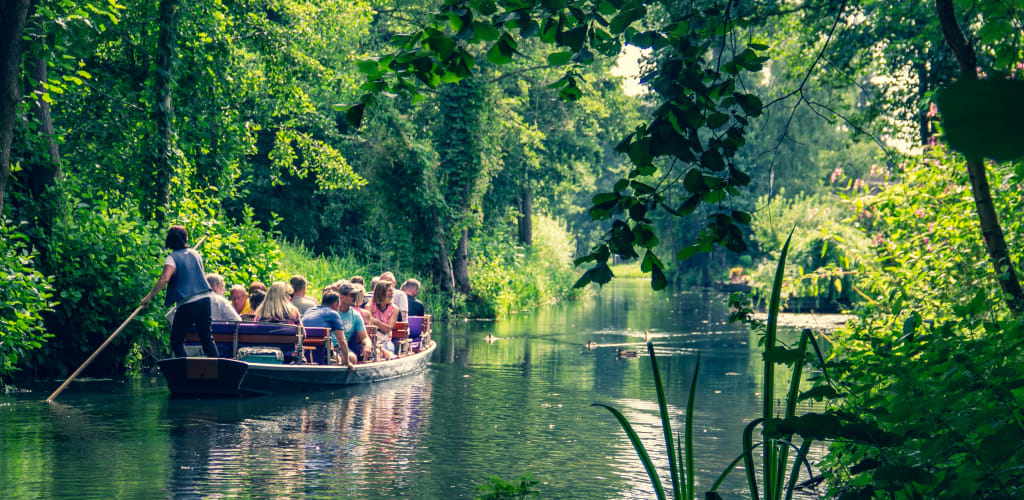
Eco-tourism, a rapidly growing sector of the travel industry, represents a conscious approach to exploring destinations. It goes beyond the typical tourist experience, emphasizing responsible interaction with the environment and local communities. This mindful approach is crucial in minimizing the negative impacts of traditional tourism on natural and cultural heritage.
Eco-tours prioritize sustainable practices, ensuring that the travel experience benefits both the environment and the local communities, rather than simply exploiting resources. This holistic approach differentiates it from conventional tourism, which often focuses solely on maximizing profit and tourist satisfaction, often at the expense of the environment and local cultures.
Core Principles of Eco-Tourism
Eco-tourism is fundamentally based on a set of core principles. These include minimizing environmental impact, respecting local cultures, and supporting local economies. This approach acknowledges the interconnectedness of environmental, social, and economic factors in the travel industry. Eco-tourism operators strive to create positive impacts across these three spheres.
Distinguishing Eco-Tours from Conventional Tours
Eco-tours differ significantly from conventional tours in their approach to environmental impact, community involvement, and economic benefits. Conventional tours often prioritize speed and quantity of sights over depth of experience, potentially causing environmental damage and neglecting the local communities. Eco-tours, on the other hand, focus on minimizing their environmental footprint and promoting sustainable practices. They actively involve local communities and seek to benefit local economies.
Environmental, Social, and Economic Impacts of Eco-Tours
Eco-tours have multifaceted impacts on the environment, local communities, and the overall economy. Positive environmental impacts include reduced carbon emissions, conservation of natural resources, and promotion of biodiversity. Socially, eco-tours can empower local communities by providing economic opportunities and fostering cultural exchange. Economically, eco-tours can generate income for local businesses and contribute to sustainable development.
Comparison of Eco-Tours and Traditional Tours
| Aspect | Eco-Tours | Traditional Tours |
|---|---|---|
| Environmental Impact | Minimize environmental damage; promote sustainable practices; support conservation efforts. | Often prioritize speed and quantity over sustainability; may cause pollution and resource depletion. |
| Community Involvement | Actively involve local communities; support local businesses; foster cultural exchange. | May not engage with local communities; may not benefit local businesses or cultures. |
| Economic Benefits | Generate income for local communities and businesses; contribute to sustainable development. | May benefit primarily large corporations or international tourism companies, not necessarily local economies. |
| Transportation | Prioritize sustainable transportation methods, such as cycling, walking, or using electric vehicles. | Often rely on large vehicles, like buses, increasing carbon emissions. |
| Accommodation | Choose locally owned and operated eco-lodges and guesthouses that prioritize sustainability. | May use large hotels that may not prioritize local sustainability practices. |
Types of Eco-Tours
Eco-tours offer diverse experiences, connecting travelers with nature and local cultures in sustainable ways. They cater to various interests, from wildlife enthusiasts to adventure seekers and cultural explorers. This exploration delves into the diverse categories of eco-tours, highlighting their unique characteristics and popular destinations.
Wildlife Viewing Tours
These tours prioritize the observation and appreciation of diverse wildlife species in their natural habitats. They often focus on specific animal populations, such as birdwatching, whale watching, or safari experiences. These tours often involve guided excursions to protected areas and emphasize responsible wildlife viewing practices, ensuring minimal disturbance to the animals and their environment.
- These tours are popular for their opportunity to encounter exotic and endangered species in their natural habitats. Experienced guides provide insights into animal behavior, conservation efforts, and the delicate ecosystems they inhabit.
- Safari tours in Africa, known for their abundance of large mammals, are a prime example. Similarly, birdwatching tours in the Amazon rainforest showcase the extraordinary avian diversity of the region.
Cultural Immersion Tours
These tours focus on understanding the traditions, customs, and lifestyles of local communities. They involve interacting with indigenous populations, learning about their history and crafts, and experiencing their cultural heritage firsthand. Cultural immersion tours promote respect for local cultures and contribute to the economic well-being of the communities visited.
- These tours often include visits to local villages, workshops, and festivals, offering opportunities for meaningful interactions with the people and their way of life.
- Experiences in Southeast Asia, with its rich tapestry of traditions and ancient cultures, are particularly renowned for cultural immersion opportunities.
Adventure Eco-Tours
These tours emphasize physical activity and exploration in natural environments. They may involve hiking, kayaking, rock climbing, or other outdoor pursuits. Adventure eco-tours are often designed to minimize environmental impact and promote responsible tourism practices.
- Adventure eco-tours are a blend of adventure and conservation. They offer opportunities for thrilling outdoor activities while educating participants about the importance of environmental protection.
- The Andes Mountains in South America provide stunning landscapes for trekking and mountaineering, while kayaking tours in the Galapagos Islands allow visitors to explore unique marine ecosystems.
Nature-Based Experiences
These tours emphasize the appreciation of natural landscapes and ecosystems. They might include hikes through national parks, visits to botanical gardens, or explorations of scenic waterways. Nature-based experiences focus on promoting environmental awareness and stewardship.
- These tours provide opportunities to appreciate the beauty and wonder of the natural world. They often include educational components, fostering a deeper understanding of the surrounding ecosystems and their fragility.
- National parks worldwide, like Yellowstone in the United States, offer numerous nature-based tours, allowing visitors to explore diverse ecosystems and learn about the biodiversity within.
Comparison of Eco-Tour Types
Each type of eco-tour provides a unique experience. Wildlife viewing tours focus on observing animals in their habitat, while cultural immersion tours emphasize interaction with local communities. Adventure tours prioritize physical activity and exploration, and nature-based tours highlight the beauty of the natural environment. The choice of an eco-tour depends on the traveler’s interests and preferences.
Destination Examples
Various destinations are renowned for specific types of eco-tours. Africa is well-known for its wildlife viewing safaris, while Southeast Asia is ideal for cultural immersion experiences. South America offers a mix of adventure and nature-based tours, and the Galapagos Islands are perfect for both wildlife viewing and nature exploration.
| Type of Eco-Tour | Target Audience | Key Features |
|---|---|---|
| Wildlife Viewing | Animal enthusiasts, photographers | Observing animals in natural habitats, guided tours, and responsible practices |
| Cultural Immersion | Culture lovers, history buffs | Interacting with local communities, learning about traditions, and respecting local customs |
| Adventure | Adventurous travelers, outdoor enthusiasts | Hiking, kayaking, climbing, and responsible exploration |
| Nature-Based | Nature lovers, photographers, and hikers | Exploring natural landscapes, learning about ecosystems, and promoting environmental awareness |
Planning and Operations of Eco-Tours
Eco-tours, by their very nature, necessitate a meticulous approach to planning and execution. A successful eco-tour hinges on a deep understanding of the destination’s environmental sensitivities, community needs, and the responsible management of visitor impact. This section delves into the critical considerations for crafting and operating eco-tours sustainably and ethically.
Effective eco-tour planning involves a careful consideration of several factors, from route selection to waste management. By prioritizing environmental conservation and community engagement, operators can ensure that these tours serve as positive experiences for both visitors and the local environment.
Essential Considerations for Sustainable Eco-Tour Planning
Careful planning and implementation are paramount for the success and sustainability of eco-tours. This involves understanding the unique characteristics of the destination, local regulations, and community needs. Eco-tour operators should strive to minimize their environmental footprint by employing eco-friendly practices in every aspect of their operation.
Designing an Eco-Tour Itinerary
Crafting a sustainable itinerary is crucial for an eco-tour. The itinerary should prioritize minimizing environmental impact and maximizing positive engagement with the destination. Careful route planning is key, aiming to avoid sensitive ecosystems and fragile habitats. The itinerary should incorporate local expertise and insight, ensuring that the tour’s activities are both enriching and respectful of the environment. Consider incorporating educational components that highlight local biodiversity, cultural heritage, and environmental issues.
Minimizing the Environmental Footprint, Eco tours
Minimizing the environmental footprint of eco-tours requires a multi-faceted approach. Transportation choices should prioritize fuel efficiency and minimize emissions. Accommodation options should be carefully selected to ensure sustainability, considering factors like energy use, water conservation, and waste management. Strict adherence to Leave No Trace principles is critical. This includes minimizing waste generation, properly disposing of waste, and respecting natural resources. For instance, reusable water bottles and food containers can significantly reduce single-use plastics.
Potential Environmental Concerns and Mitigation Strategies
Several environmental concerns can arise during eco-tours. These include habitat disruption, pollution, and waste generation. To mitigate these concerns, operators should adhere to strict guidelines for waste disposal, implement responsible transportation practices, and select accommodations with strong environmental credentials. Education and awareness programs for tourists play a vital role in fostering responsible behavior. For example, promoting responsible wildlife viewing practices can significantly reduce stress on vulnerable species.
Sustainable Practices for Eco-Tour Operators
A structured approach to sustainable practices is essential for eco-tour operators. These practices should encompass various aspects of tour operations.
| Aspect | Sustainable Practice |
|---|---|
| Transportation | Utilize fuel-efficient vehicles, consider electric or hybrid options where feasible, and minimize travel distances wherever possible. Optimize transport routes to reduce unnecessary travel. |
| Accommodation | Partner with eco-lodges or hotels that prioritize sustainability, featuring renewable energy sources, water conservation initiatives, and responsible waste management systems. Consider local homestays for cultural immersion and reduced environmental impact. |
| Waste Management | Implement a comprehensive waste management plan that includes recycling, composting, and proper waste disposal. Minimize packaging and encourage the use of reusable materials. Implement a zero-waste policy whenever possible. |
Destinations for Eco-Tours
Eco-tourism is rapidly gaining popularity, offering travelers a chance to experience the natural world while supporting local communities. This approach emphasizes responsible travel and minimal environmental impact. This section explores globally recognized eco-tourism destinations, showcasing their unique features and the communities actively involved.
Globally Renowned Eco-Tourism Destinations
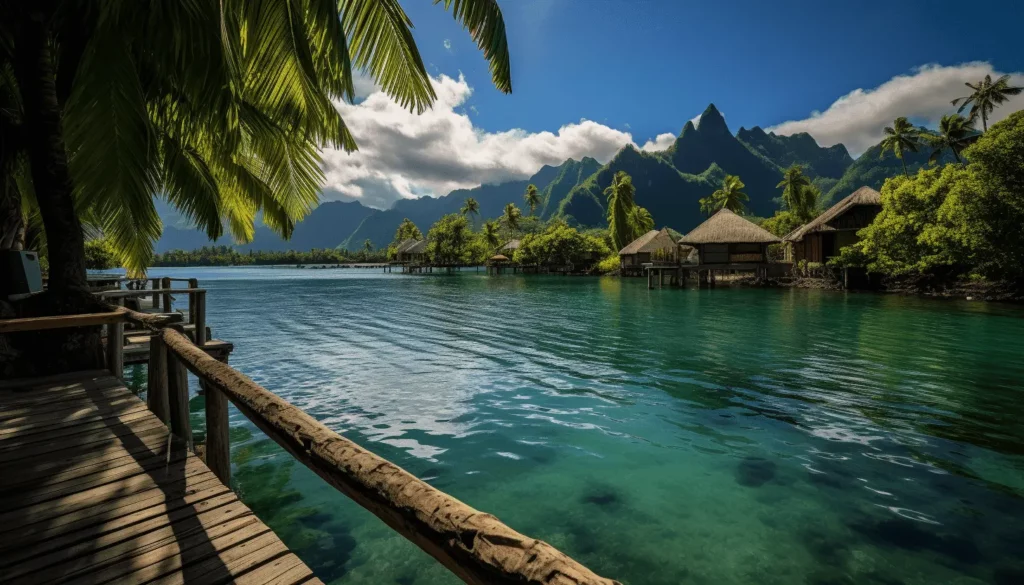
Numerous destinations worldwide excel in offering diverse eco-tourism experiences. These locations often boast breathtaking landscapes, rich biodiversity, and vibrant cultural heritage. Careful planning and responsible practices ensure the long-term sustainability of these areas and the well-being of local communities.
Unique Natural and Cultural Attractions
These destinations often possess exceptional natural attractions. Consider the Amazon rainforest, teeming with unique flora and fauna, or the Galapagos Islands, famous for their endemic species. Beyond nature, many destinations offer cultural experiences, connecting visitors with the local traditions and customs. For instance, exploring ancient ruins or learning traditional crafts provides a deeper understanding of the region’s history and heritage.
Local Communities and Their Benefits
Eco-tourism often involves direct engagement with local communities. Local guides, artisans, and hospitality providers are crucial to the eco-tourism experience. The economic benefits of eco-tourism are frequently significant, providing jobs and income opportunities for residents. This, in turn, fosters a sense of community ownership and pride in preserving their environment.
Eco-Lodges and Tour Operators
Many eco-lodges and tour operators in these destinations prioritize sustainability and responsible practices. They often use locally sourced materials, employ local staff, and adhere to strict environmental regulations. Examples include lodges built with sustainable materials, employing local guides who understand the local ecosystem, and tours that minimize their ecological footprint.
Table of Eco-Tour Destinations
| Destination | Unique Features | Offerings |
|---|---|---|
| Costa Rica | Rainforests, volcanoes, and diverse wildlife (monkeys, sloths, toucans). | Hiking, wildlife viewing, zip-lining, canopy tours, and birdwatching. |
| Kenya | African savannas, diverse wildlife (lions, elephants, rhinos), and Maasai culture. | Game drives, safaris, cultural interactions, and visits to Maasai villages. |
| Galapagos Islands | Unique endemic species (giant tortoises, marine iguanas), volcanic landscapes, pristine beaches. | Boat tours, wildlife viewing, snorkeling, and diving. |
| Bhutan | Himalayan mountains, stunning landscapes, and Buddhist culture. | Hiking, trekking, cultural experiences, and meditation retreats. |
| Peru | Andean mountains, ancient Incan ruins (Machu Picchu), Amazon rainforest. | Hiking, trekking, cultural tours, and jungle expeditions. |
Benefits and Challenges of Eco-Tours
Eco-tourism, a rapidly growing sector, offers a unique opportunity for both travelers and local communities to experience the natural world while minimizing its impact. It’s a dynamic blend of adventure, education, and conservation, but it’s crucial to understand the advantages and disadvantages to ensure its long-term sustainability.
Advantages for Travelers
Eco-tours provide travelers with a chance to connect with nature in a meaningful way. They often offer immersive experiences, enabling visitors to witness rare wildlife, explore pristine landscapes, and learn about local ecosystems. This firsthand interaction fosters a deeper appreciation for the environment and promotes environmental stewardship. Experiencing local culture through eco-tourism also provides a more authentic and enriching travel experience.
- Enhanced appreciation for nature: Eco-tours allow travelers to experience natural wonders, fostering a sense of wonder and respect for the environment.
- Support for local communities: Eco-tourism often generates revenue for local businesses and communities, contributing to their economic well-being.
- Unique cultural experiences: Eco-tours frequently incorporate cultural immersion, providing travelers with an authentic glimpse into local traditions and customs.
- Reduced environmental impact: Well-managed eco-tours frequently minimize the negative effects on the environment, promoting sustainable practices.
Advantages for Local Communities
Eco-tourism can be a significant driver of economic development for local communities. It creates jobs in areas like guiding, hospitality, and crafts, leading to increased income and improved living standards. Furthermore, revenue generated from eco-tours can be invested in community projects, such as schools, hospitals, and infrastructure improvements. This sustainable approach can foster long-term prosperity.
- Economic benefits: Eco-tourism can generate revenue for local businesses and create jobs, boosting the local economy.
- Improved infrastructure: The funds generated can be used to develop and maintain local infrastructure, enhancing quality of life.
- Cultural preservation: Eco-tourism can support local traditions and cultural heritage, fostering pride and community engagement.
- Environmental conservation: Local communities can benefit from conservation efforts associated with eco-tourism, leading to sustainable management of natural resources.
Environmental Benefits
Eco-tourism, when managed effectively, can contribute to environmental conservation. The revenue generated can be used to support conservation projects, protecting endangered species and preserving fragile ecosystems. Moreover, eco-tours often promote awareness of environmental issues, encouraging visitors to adopt sustainable practices.
- Conservation efforts: Eco-tourism can generate funds for environmental protection, supporting projects aimed at preserving biodiversity.
- Environmental awareness: Eco-tours frequently educate travelers about environmental issues, fostering a sense of responsibility.
- Sustainable practices: Well-structured eco-tours often promote sustainable tourism practices, minimizing negative environmental impacts.
Challenges of Eco-Tourism
Eco-tourism, despite its benefits, faces several challenges. Infrastructure limitations, such as inadequate transportation or lodging, can hinder the smooth operation of eco-tours. Community concerns regarding the impact on local traditions and resources are also prevalent. Furthermore, environmental risks, like pollution or damage to natural habitats, are potential issues if not managed properly.
- Infrastructure limitations: Inadequate infrastructure, such as transportation and lodging facilities, can negatively impact the visitor experience.
- Community concerns: Lack of community involvement or concerns about cultural preservation can hinder the acceptance of eco-tourism initiatives.
- Environmental risks: Pollution, habitat damage, and unsustainable practices can negatively impact the environment and local ecosystems.
Solutions for Addressing Challenges
Addressing these challenges requires a multi-faceted approach. Investing in local infrastructure, fostering community participation, and implementing strict environmental regulations are essential. Clear communication and collaboration between stakeholders are crucial for ensuring the long-term success and sustainability of eco-tourism.
- Community involvement: Engaging local communities in the planning and operation of eco-tours is vital for addressing concerns and ensuring sustainability.
- Sustainable infrastructure: Investing in sustainable infrastructure can enhance the visitor experience and minimize environmental impact.
- Environmental regulations: Implementing strict environmental regulations can protect natural resources and prevent damage to fragile ecosystems.
Benefits and Challenges Table
| Aspect | Benefits for Travelers | Benefits for Local Communities | Challenges |
|---|---|---|---|
| Environmental | Enhanced appreciation of nature, reduced environmental impact | Conservation efforts, sustainable resource management | Pollution, habitat damage, and unsustainable practices |
| Social | Authentic cultural experiences, support for local communities | Cultural preservation, economic development | Community concerns, cultural disruption |
| Economic | Support for local businesses, increased income | Job creation, improved living standards | Infrastructure limitations, lack of investment |
The Future of Eco-Tours: Eco Tours
Eco-tourism is evolving rapidly, driven by increasing awareness of environmental issues and a growing desire for authentic and responsible travel experiences. The future of eco-tours promises exciting innovations, focusing on sustainable practices and community engagement. This evolution is characterized by a move beyond simply visiting nature to actively participating in its preservation and appreciating the cultural richness of the destinations.
The future of eco-tourism will see a blend of traditional experiences with cutting-edge technology and a strong emphasis on supporting local communities. This approach is vital for fostering long-term conservation and ensuring the economic viability of the destinations for future generations.
Emerging Trends and Innovations
Eco-tourism is embracing innovative approaches to enhance the visitor experience while minimizing environmental impact. These include the integration of renewable energy sources in tour operations, promoting local products, and offering tours that focus on specific ecosystems or endangered species. Emphasis on sustainable transportation, like electric vehicles and cycling tours, is also becoming a key component.
Impact of Technology on the Eco-Tour Experience
Technology is reshaping the eco-tour experience by providing enhanced access to information, personalized itineraries, and interactive engagement. Virtual reality (VR) and augmented reality (AR) experiences are being used to offer immersive previews of destinations, promoting understanding and appreciation for the environment. Digital platforms also allow for real-time communication and information sharing, fostering stronger connections between tourists and local communities. Mobile apps provide information on local wildlife, cultural practices, and conservation initiatives, enriching the visitor experience.
Role of Eco-Tourism in Conservation Efforts
Eco-tourism plays a critical role in conservation by generating revenue for protected areas and empowering local communities. This funding directly supports conservation initiatives, such as habitat restoration, anti-poaching efforts, and the protection of endangered species. By creating economic incentives for environmental preservation, eco-tourism can be a powerful tool in safeguarding biodiversity and natural resources. For instance, many parks and reserves use a portion of eco-tour revenue to fund conservation projects, demonstrating the economic viability of this approach.
Innovative Eco-Tour Operators and Their Approaches
Several operators are leading the way in innovative eco-tourism practices. One example is a company focusing on sustainable transportation, using electric vehicles and bicycles for tours in national parks, thereby reducing carbon emissions and promoting a healthier environment. Another example is a tour operator partnering with local communities to create unique cultural experiences, ensuring that tourism benefits local economies and traditions. These operators emphasize ethical sourcing of products, support for local craftspeople, and community involvement.
Potential Future Directions for Eco-Tours
The future of eco-tourism is characterized by a focus on sustainability and community engagement. This includes:
- Emphasis on carbon-neutral travel practices, promoting sustainable transportation, and responsible accommodation choices.
- Development of immersive and educational experiences using VR/AR technology to connect tourists with local ecosystems and cultures.
- Direct engagement with local communities through partnerships, ensuring equitable distribution of tourism benefits, and promoting cultural exchange.
- Focus on responsible consumption and waste management, implementing initiatives for reducing waste and promoting recycling.
- Customization of eco-tours, offering tailored experiences for diverse interests and abilities, catering to niche markets like wildlife enthusiasts and nature photographers.
Illustrative Examples of Eco-Tours
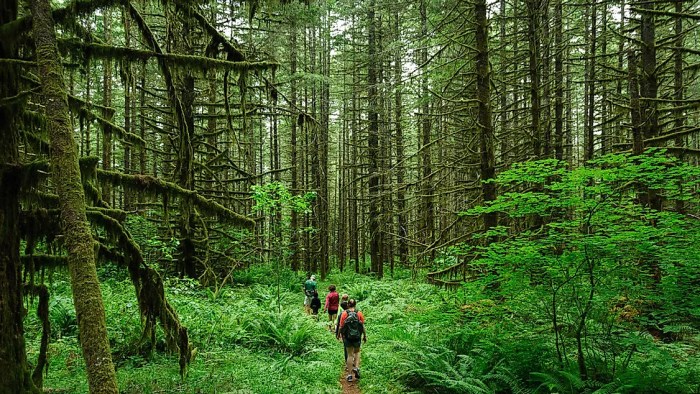
Source: worldatlas.com
Eco-tourism offers a unique opportunity to experience natural wonders while minimizing our environmental footprint and supporting local communities. These examples showcase the diversity and potential of eco-tours, highlighting responsible practices and community engagement. They illustrate how well-planned and executed tours can positively impact both the environment and the local population.
A Rainforest Canopy Walk Eco-Tour
This exemplary eco-tour focuses on experiencing the biodiversity of a tropical rainforest while minimizing environmental impact.
- Itinerary: The 5-day tour begins with a guided transfer to a sustainably managed ecolodge nestled within the rainforest. Activities include a guided canopy walk through the rainforest’s upper canopy, birdwatching expeditions, and night hikes to spot nocturnal wildlife. The tour also incorporates visits to local villages for cultural interactions and understanding of traditional practices. A final day is devoted to learning about local conservation efforts and the importance of sustainable forestry.
- Activities: Besides the canopy walk, the tour includes nature walks, birdwatching sessions with trained guides, and cultural exchanges with local communities. Participants learn about the region’s ecology and the importance of conservation. Educational workshops on sustainable living and rainforest preservation are also included. There are also opportunities for optional activities like yoga or meditation sessions.
- Accommodation: The ecolodge uses locally sourced materials and sustainable practices in its construction. It minimizes its environmental impact through water conservation and waste management systems. Rooms are designed with local architectural styles, maximizing the use of natural light and ventilation. The ecolodge prioritizes minimal environmental disturbance and maximizes community involvement.
- Environmental Impact: The tour minimizes its environmental impact by using eco-friendly transportation, supporting local businesses, and employing sustainable practices at the ecolodge. The tour promotes environmental awareness and encourages responsible wildlife viewing. The focus is on non-invasive observation and respecting the delicate ecosystem.
- Social Impact: The tour directly benefits local communities by employing local guides and staff. The profits are reinvested in community development projects, like schools, healthcare, and infrastructure. Participants gain a deeper understanding of the culture and traditions of the indigenous people. This cultural exchange fosters mutual respect and understanding.
A Community-Based Eco-Tour in the Andes
This fictional eco-tour prioritizes responsible travel and community engagement.
- Itinerary: A 7-day tour focuses on the cultural heritage of the Andes. It involves guided treks through the mountains, visits to local artisan workshops, and participation in traditional Andean celebrations. A key element is working alongside local farmers in sustainable agriculture practices, demonstrating the community’s resilience.
- Activities: The tour includes guided hikes through stunning Andean landscapes, interactions with local farmers, and hands-on experience in traditional farming techniques. Participants learn about the importance of sustainable agriculture in the region. The tour also involves workshops on Andean weaving, pottery, and music, promoting cultural exchange and understanding.
- Accommodation: The tour utilizes locally owned guesthouses and lodges, maximizing economic benefits for the community. The accommodation is designed to blend with the local environment and incorporates local architectural styles. It promotes sustainability through the use of locally sourced materials and responsible energy use.
- Environmental Impact: The tour prioritizes minimal impact on the delicate Andean ecosystem. It uses eco-friendly transportation, supports local businesses, and encourages responsible waste management. The tour promotes conservation awareness and discourages practices that harm the environment.
- Social Impact: The tour directly benefits local communities by creating employment opportunities for local guides, artisans, and hospitality staff. It empowers local communities by providing them with sustainable income sources. The tour fosters a deeper understanding and appreciation for the rich culture of the Andes.
A Sustainable Eco-Tour in Costa Rica
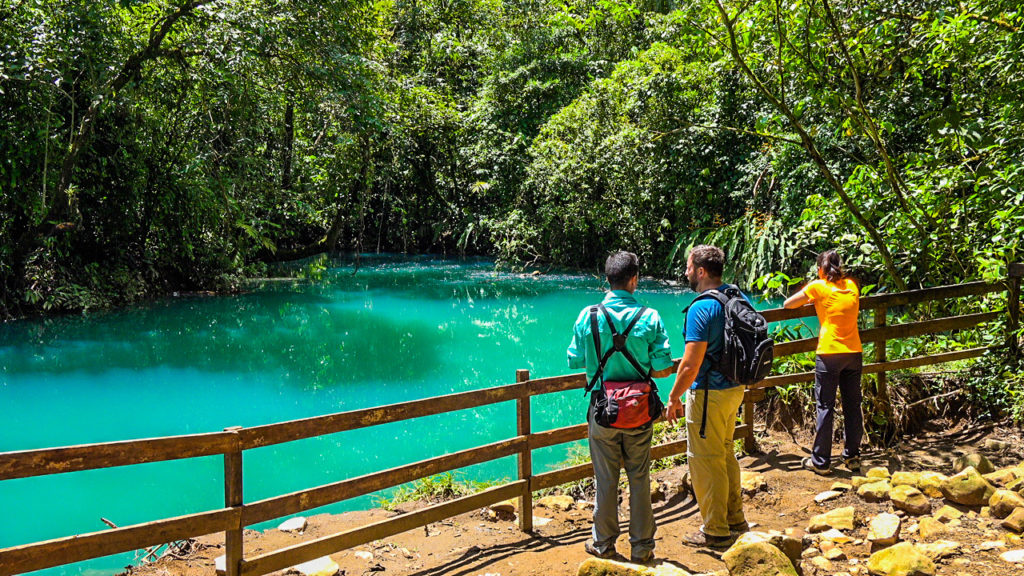
This eco-tour emphasizes the importance of supporting local communities.
- Itinerary: A 6-day adventure exploring Costa Rica’s biodiversity hotspots. It focuses on supporting local communities through purchasing products and services from local businesses. The itinerary includes visits to sustainable coffee plantations, wildlife reserves, and community-owned ecotourism projects. Participants are encouraged to engage with local markets and support local artisans.
- Activities: Participants engage in activities like zip-lining through lush forests, exploring national parks, and interacting with local communities. The tour highlights the connection between conservation and community well-being. Participants also learn about sustainable agriculture and the importance of preserving the rainforest.
- Accommodation: The tour utilizes locally owned accommodations that prioritize sustainable practices. The eco-lodges use locally sourced materials and renewable energy sources. They are designed to blend harmoniously with the surrounding environment, respecting the local ecosystem.
- Environmental Impact: The tour actively seeks to minimize its environmental impact through responsible transportation, waste management, and support for local conservation initiatives. It encourages responsible wildlife viewing and promotes respect for the local ecosystem.
- Social Impact: The tour supports local communities by purchasing products from local artisans and businesses. It creates job opportunities for local guides and staf, and supports local community projects.
Concluding Remarks
In conclusion, eco tours represent a powerful force for positive change, offering travelers an opportunity to connect with nature, culture, and local communities sustainably. While challenges exist, the potential for growth and impact is immense. By understanding the core principles and practices of eco-tourism, we can support a future where travel enriches both the individual and the planet.

